News
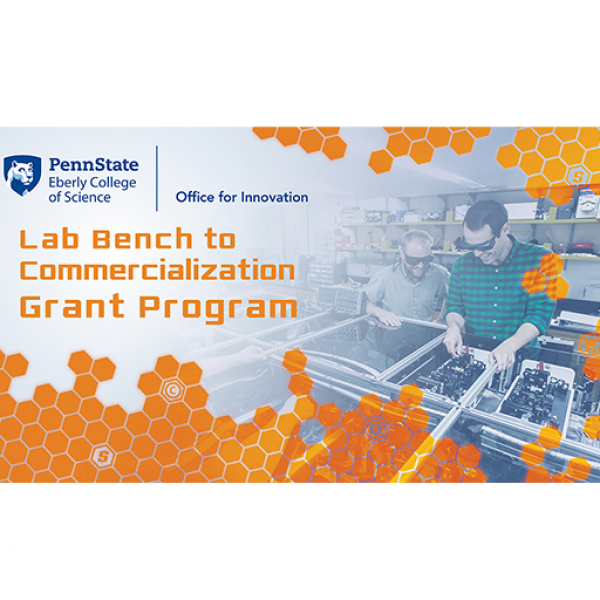
Jul 01, 2025
Lab Bench to Commercialization program broadens its scope
Eberly College of Science seed grant program to shift emphasis to earlier development of research, focusing on societal impact and career readiness.
Full Article
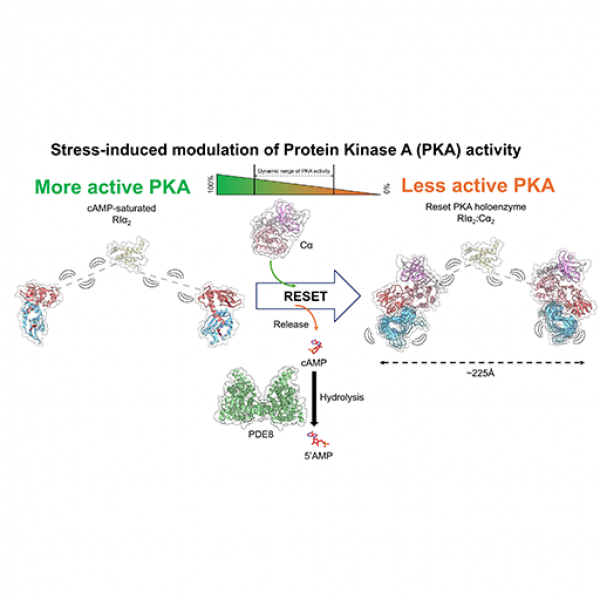
May 29, 2025
Resetting the fight-or-flight response
New study reveals mechanism responsible for resetting key molecular cycle involved in response to stress and starvation.
Full Article
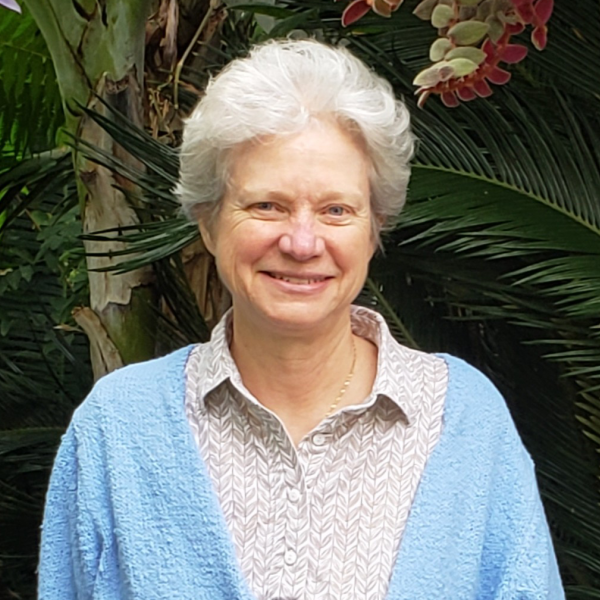
Mar 14, 2025
Plant biologist awarded the Masatoshi Nei Innovation Prize in Biology
Sarah Assmann, Waller Professor of Plant Biology at Penn State, has been awarded the Masatoshi Nei Innovation Prize in Biology. The award was established through a generous gift from Masatoshi Nei, professor emeritus of biology at Penn State; Laura Carnell, professor of biology at Temple University; and Nei’s wife, Nobuko Nei. The prize is intended to recognize a preeminent scientist who is on the faculty at Penn State, is an innovator in their field, and has achieved outstanding scientific research and leadership in the biological sciences.
Full Article
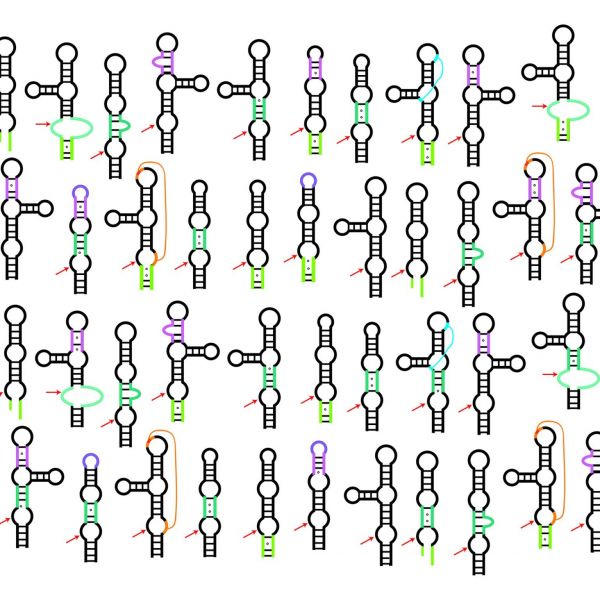
Nov 06, 2024
Testing thousands of RNA enzymes helps find first ‘twister ribozyme’ in mammals
A new method, developed by Penn State researchers, can test the activity of thousands of predicted ribozymes in a single experiment.
Full Article

Oct 31, 2024
Huck researchers reflect on the 2024 Nobel Prize in Chemistry
This month, the Nobel Prize in Chemistry was awarded to three scientists credited with historic breakthroughs surrounding proteins and their structures. Three Huck researchers working on similar challenges chime in with their thoughts.
Full Article
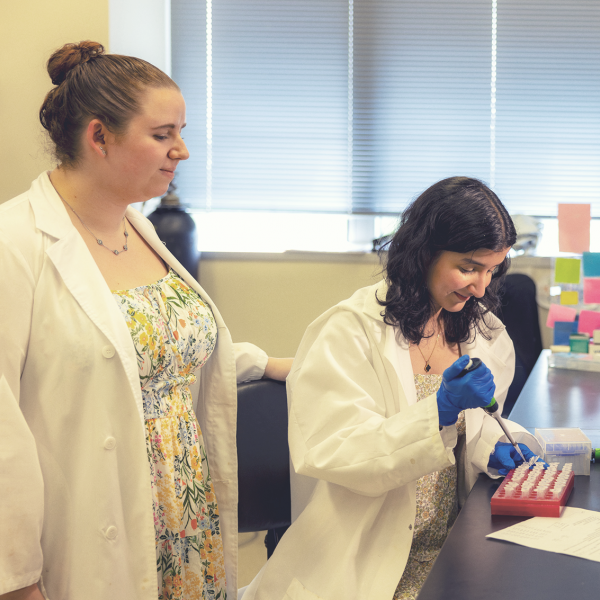
Oct 14, 2024
Toxic protein may contribute to ALS development
New study elucidates the physiological processes that may contribute to ALS development and identifies a potential therapeutic target
Full Article
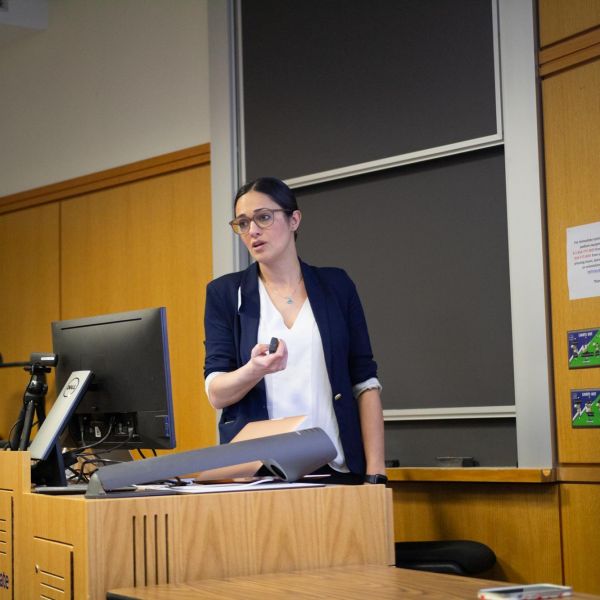
May 21, 2024
Heard on campus: RNA expert Sara Rouhanifard
Scientists from prominent U.S. research institutions, including Sara Rouhanifard, assistant professor in the bioengineering department at Northeastern University, gathered recently at Penn State University Park for the inaugural Center for RNA Molecular Biology symposium, a one-day conference that brought together experts from varied fields around topics ranging from RNA chemistry to computational biology.
Full Article
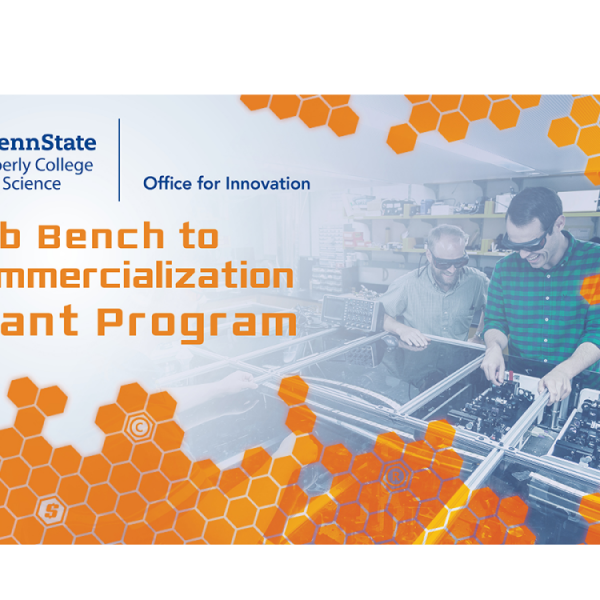
Feb 15, 2024
Lab Bench to Commercialization 2024 grant recipients announced
Four projects led by researchers in the Penn State Eberly College of Science have been selected to receive Lab Bench to Commercialization (LB2C) grants in 2024
Full Article

Oct 25, 2023
Biochemist selected as Innovation Fund investigator by Pew Charitable Trusts
Katsuhiko Murakami, professor of biochemistry and molecular biology at Penn State, has been selected as a member of the 2023 class of Innovation Fund investigators by the Pew Charitable Trusts.
Full Article

Apr 20, 2023
Grad Students in Huck Labs Win Awards for Innovative Research
Two graduate students—one in the Huck's Neuroscience program and the other in the Eberly College of Science's BMMB program—have been named recipients of an award available to those working in Biochemistry and Molecular Biology labs. Both PIs are also part of the Huck.
Full Article